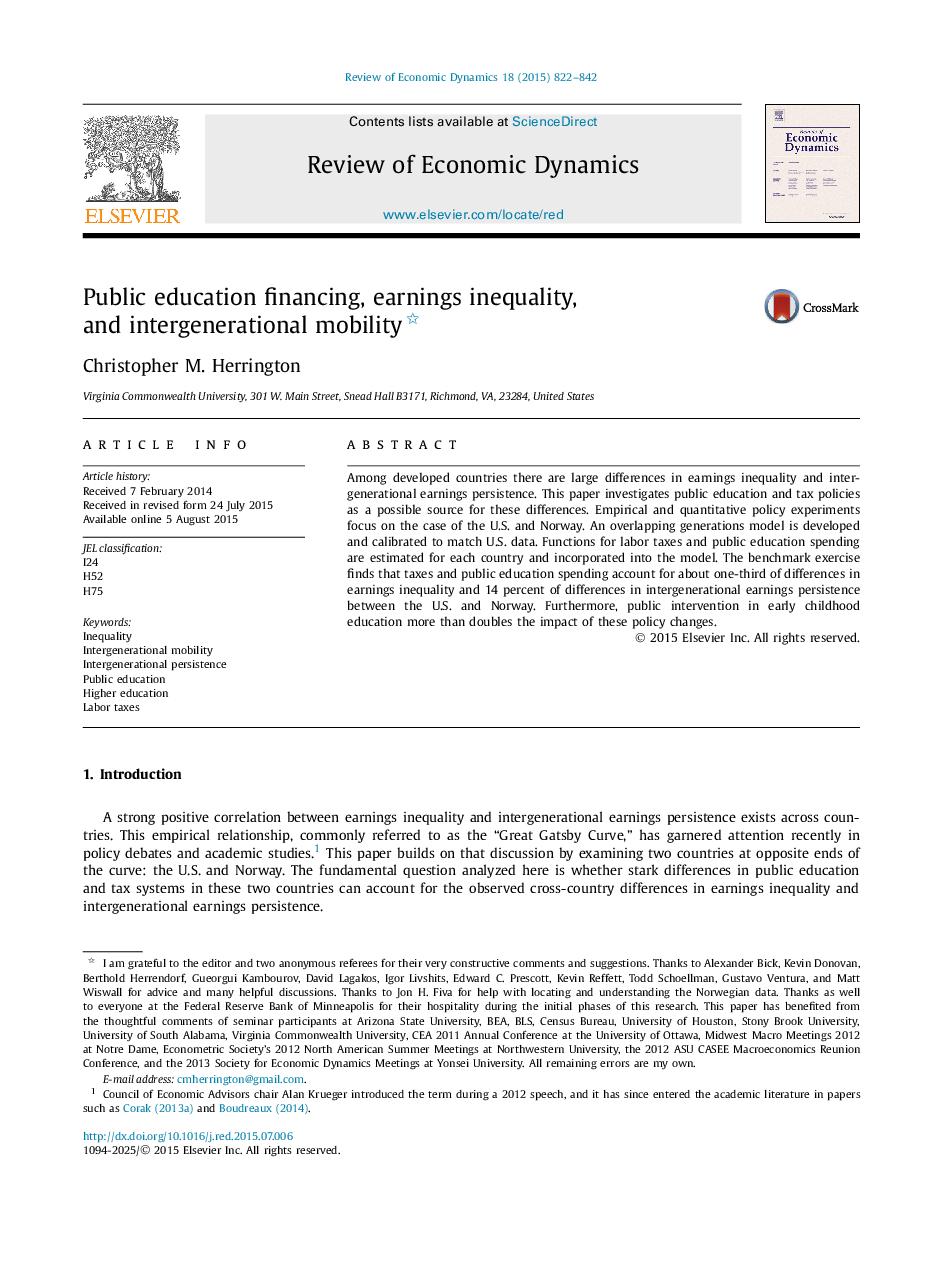| Article ID | Journal | Published Year | Pages | File Type |
|---|---|---|---|---|
| 986815 | Review of Economic Dynamics | 2015 | 21 Pages |
Among developed countries there are large differences in earnings inequality and intergenerational earnings persistence. This paper investigates public education and tax policies as a possible source for these differences. Empirical and quantitative policy experiments focus on the case of the U.S. and Norway. An overlapping generations model is developed and calibrated to match U.S. data. Functions for labor taxes and public education spending are estimated for each country and incorporated into the model. The benchmark exercise finds that taxes and public education spending account for about one-third of differences in earnings inequality and 14 percent of differences in intergenerational earnings persistence between the U.S. and Norway. Furthermore, public intervention in early childhood education more than doubles the impact of these policy changes.
